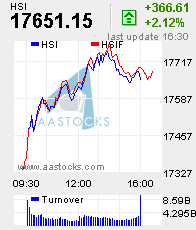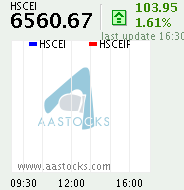The introduction of “Goods and Services Tax” is NOT suitable for Hong Kong. The Poor and the Retired suffered as the tax is regressive in nature.
The introduction of “Goods and Services Tax” is NOT suitable for Hong Kong SAR as the poor or disadvantaged and the retired persons will be suffered more, as the tax is regressive in nature.
Goods and Services Tax (GST or sales tax) is based on the transaction amount. The tax rate of GST tax is regressive in nature. That means the rate of such taxation is higher for the lower income group than that for the higher income group.
Nowadays the countries like United States, France, Singapore, Australia, Thailand, etc. are implementing such GST and the tax rate ranged from 3% to 15% per month.
In terms of the benefits and drawbacks after the implementation of GST are as follows in brief:
Benefits --- It broadens the tax base, as consumers will have to pay more tax as they spend. Tax evasion seems to be unlikely and the SAR government revenues will be assured no matter in time of economic boom or recession.
Drawbacks --- The burden on the poor and retired will be surely heavier than before no matter there will be tax concession or not. Such reputation of shopping paradise as enjoyed by Hong Kong will no longer exist. The corresponding increase in the retail prices will suppress local and foreign consumption. Our tourist industry will be hurt. In turns our GDP may be hurt since quite a significant share of contribution comes from the tourist revenues. Hong Kong is no longer a tax haven. The competitive edge of such so-called simple tax system prevailing in Hong Kong may disappear then. The poor and retired may continue to be suffered from the curse of high tax rate since the tax is regressive in nature.
I think even how Hong Kong restructuring its economy in the future, the fundamental of Hong Kong economy lies on the tertiary production that we cannot undermine the importance of the services and sales sector.
In a nutshell, the introduction of GST by our government is unwise. The GST is bound to weaken the competitiveness of Hong Kong's economy.
Once the GST is introduced it is hardly for the government to reverse it. And I worry our government may be more extravagant and spend more then. In fact, Hong Kong government currently earns more than 100 billion dollars a year from taxation, as many countries are really lagging behind that. Moreover, the revenue received seems not to be shrinking in the near future. I wonder what is the philosophy behind for the introduction of such GST. Once it is passed, it symbols there will be a fundamental change in the tax revenue structure of Hong Kong.
It is ridiculous that our government allegedly concerns poverty alleviation on one hand and changes the basic taxation policy on the other, as regressive tax nature seems to be strengthened.
Regressive taxation will surely lead to the scenario of so-called“robbing the poor to pay the rich”. No way! I, being a retired person, am so disappointed and outraged if the GST is really introduced in the future. I will be just helplessly to yell “Long live the GST, Long live our Government!” if I still stay in this lovely territory, HKSAR.
NOTE: The above article on the government proposed goods and sales tax has been submitted to the HKSAR's Financial Secretary, Henry Tang.
http://wongtc.blogspot.com/
Copyright Reserved by tcwong©











3 Comments:
SALES TAX
I would like to talk about the effect of implementing sales tax.
It can transfer income of households to government. Producers of goods and services will transfer the sales tax burden to consumer by increasing prices, causing re allocation of income. For basic/essential items like grocery, public medical services that low income households cannot find substitutes easily, they will have no choice to be transferred the tax burden. As households have to pay higher prices and they might choose to consume less goods or services. Depending on the type of merchandise/services, firms or individuals may produce less products/services due to change in demand. It will further decrease any derived demand for the factors necessary for producing the goods and services covered by the tax. Finally Sale tax could increase households’ propensity to save money but decrease the propensity of present consumption. It will decrease incentive of majoriy of people in the economy.
唐英年司長忘記了相鄰的深圳,他忽略了香港零售市場今天的興旺是因爲外國貨進入大陸要抽稅,而國內的人與香港的一樣那裡價低就自由行到那裡去矣。萬一國內取消入口稅,怎樣?今天香港人到深圳消費很多,若香港徵收銷售稅,按經濟規律,香港人到深圳購物或購服務會增加,這樣香港零售商很慘,香港商舖租金暴跌,盈利及所得稅也暴跌,地産收入也暴跌,香港政府賣地進帳也暴跌。
事實上世貿協定WTO要中國的入口稅會逐步下降,自由行來港購物會逐步減少,若中國成爲自由進口國和取消關稅,這麼只有傻人才來港購物。
如果香港政府有財政困難,唯一可取的辦法是減少開支。廉價醫療及教育等要檢討,方為理財之道。多謝你提醒。
政府推銷理據毫無說服力 :---
政府推銷商品稅時提出 穩 定 財 政 收 入 和 擴 闊 稅 基 等原因,政府推銷理據毫無說服力,而提出的配套措施複雜又不公平 。在經濟不景時少收市民的 稅有甚麼問題?(Direct taxation which is progressive in nature is a built-in stabilizer that is good for our economy) 本港貧富懸殊,少數人收入很高,多數人收入低, 由少數人負擔最多的稅款合情合理。
發佈留言
<< Home